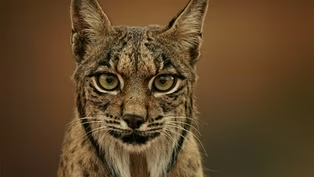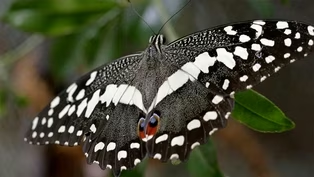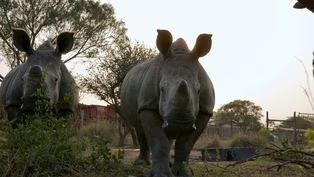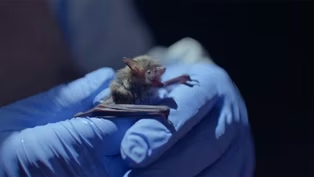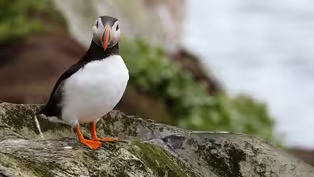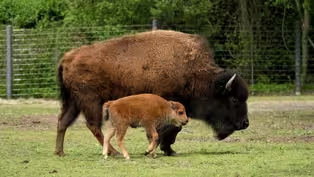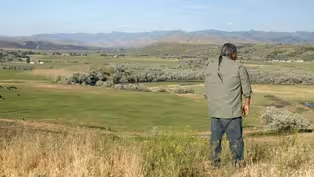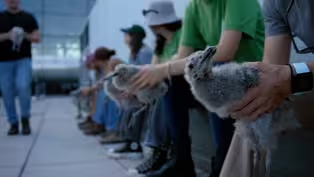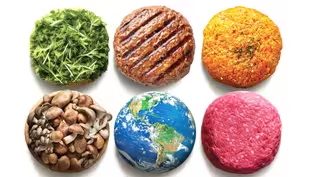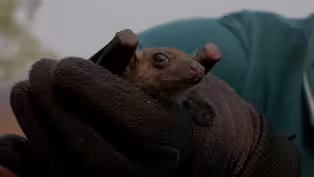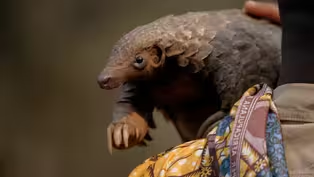
Protecting Paradise | WILD HOPE
Special | 14m 11sVideo has Closed Captions
Marine biologist Callie Veelenturf uses her research on endangered sea turtles to help protect them.
On Panama’s remote Pearl Islands, marine biologist Callie Veelenturf is using her research on endangered sea turtles to help the country enshrine the rights of nature into law — and help the communities living there protect their own environment and livelihood.
Problems playing video? | Closed Captioning Feedback
Problems playing video? | Closed Captioning Feedback
Major support for NATURE is provided by The Arnhold Family in memory of Henry and Clarisse Arnhold, Sue and Edgar Wachenheim III, The Fairweather Foundation, Charles Rosenblum, Kathy Chiao and...

Protecting Paradise | WILD HOPE
Special | 14m 11sVideo has Closed Captions
On Panama’s remote Pearl Islands, marine biologist Callie Veelenturf is using her research on endangered sea turtles to help the country enshrine the rights of nature into law — and help the communities living there protect their own environment and livelihood.
Problems playing video? | Closed Captioning Feedback
How to Watch Nature
Nature is available to stream on pbs.org and the free PBS App, available on iPhone, Apple TV, Android TV, Android smartphones, Amazon Fire TV, Amazon Fire Tablet, Roku, Samsung Smart TV, and Vizio.
Buy Now
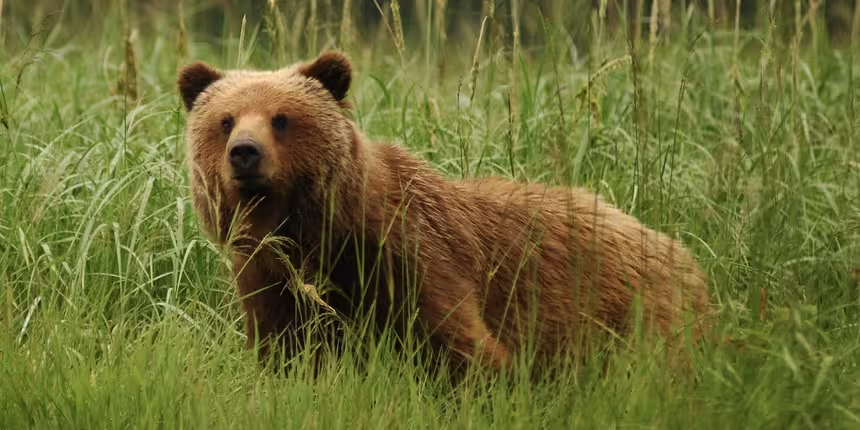
Explore More Ways to Watch
Bring the beauty and wonders of wildlife and natural history into your home with classic NATURE episodes.Providing Support for PBS.org
Learn Moreabout PBS online sponsorshipMore from This Collection
WILD HOPE is a new series of short films that highlights the intrepid changemakers who are restoring our wild places and sparking new hope for the future of our planet.
Video has Closed Captions
Once on the brink of extinction, the Iberian lynx has been given a chance to thrive again. (17m 23s)
The Butterfly Effect | WILD HOPE
Video has Closed Captions
To help stop the rise of deforestation in Zanzibar, one village has begun to farm butterflies. (12m 24s)
Video has Closed Captions
How does a densely populated nation like Singapore transform into a lush green oasis? (14m 51s)
Video has Closed Captions
For decades, rhinos have been the face of poaching. (16m 28s)
Video has Closed Captions
As a deadly fungus devastates North America’s bats, scientists are testing new ways to save them. (14m 47s)
Video has Closed Captions
In the Westman Islands, one community has banded together to save lost young puffins. (13m 15s)
Video has Closed Captions
Sixty million American bison once thundered across the prairies of North America. (18m 52s)
Reclaiming Bear River | WILD HOPE
Video has Closed Captions
The Bear River was once a lush area with wetlands, hot springs, and abundant wildlife. (17m 25s)
Building for Birds | WILD HOPE
Video has Closed Captions
Millions of migrating birds pass through our yards, but glass windows pose a deadly threat. (16m 3s)
Mission Impossible | WILD HOPE
Video has Closed Captions
Meet the genius behind the plant-based Impossible Burger. (39m 41s)
Pangolin Protectors | WILD HOPE
Video has Closed Captions
Due to the demand for their scales, pangolins are the most trafficked animal in the world. (12m 24s)
Providing Support for PBS.org
Learn Moreabout PBS online sponsorship(water splashes) ♪ CALLIE: I think that the ocean is what makes this planet habitable.
The health of the ocean and our health are very closely intertwined - we have been becoming more and more out of balance with nature.
Our unsustainable fishing practices are evidence of that.
We need the law that recognizes the rights of all nature, all ecosystems, all species.
(people cheering) I hope that we can create the opportunities to protect nature for this future generation.
♪ (water splashing) ♪ (water crashing on rocks) I did my first dive here on the reef in front of Saboga Island, and within one hour of snorkeling I saw 12 endangered turtles.
I was just totally blown away.
I think I came up with tears in my eyes.
NARRATOR: Callie Veelenturf first came to Panama in 2019 to study sea turtles on a grant from National Geographic.
She had been studying open ocean leatherbacks for the leatherback project that she founded when she noticed that one was lingering in Panamanian waters.
CALLIE: I remember being fascinated and wondering what these leatherback turtles were doing in the Gulf of Panama.
Were they foraging?
Are there nesting sites there?
(sounds of waves) NARRATOR: Callie figured the best way to find out was to see what she could learn from the local experts.
On the small island of Saboga, she met environmental engineer Aida Magaña, who introduced her to the community and the island's rich biodiversity.
(Aida speaking in Spanish) NARRATOR: Aida teamed up with Callie to kickstart the research on sea turtles.
Accessing local insight was key to the endeavor.
CALLIE: Part of my work here has been to document the local ecological knowledge and make sure that it's clear that this knowledge is what has informed the science.
(Aida speaking in Spanish) NARRATOR: The island of Saboga sits in the Gulf of Panama, part of an archipelago of over 200 islands and islets known as the Pearl Islands.
♪ CALLIE: The Pearl Islands are unique from an environmental perspective.
Humpback whales, hammerhead sharks, whale sharks, migratory birds, they're passing through the Pearl Islands.
It's a vital stop in their circle of life.
The local communities living here have known that these species are present for generations.
NARRATOR: They've also noticed changes in recent years.
♪ (Ariel speaking in Spanish) NARRATOR: Ariel Cajar, a fisherman who grew up on Saboga, has seen a significant drop in the number of fish.
(Ariel speaking in Spanish) NARRATOR: Giant foreign fishing operations have been taking advantage of historically lax regulations to overfish these waters, threatening the community's livelihood.
♪ Recently, authorities found that a total of around 40% more fish have been taken from Panama than had been reported.
That discovery got the attention of Marino Abrego from the National Ministry of Environment.
His department has been working to tighten regulations and establish Panama as a leader in marine conservation.
(Marino speaking in Spanish) NARRATOR: To help support conservation and the community here in Saboga, Marino joined forces with Callie and the team.
CALLIE: Part of this work that I've been doing here in the Pearl Islands is satellite tagging endangered species.
We've had a lot of participation from the local kids.
(water gurgling) ♪ These turtles have been their neighbors for all these years, but they haven't necessarily had the opportunity to see them.
NARRATOR: Now they're helping the team track the movements of the sea turtles, all of which are threatened with global extinction.
CALLIE: Of the sea turtles that we've tagged so far, it's very clear that a majority of their time is spent around Saboga Island, and so it's clear that Saboga is like an anchor point.
NARRATOR: If they can show that these islands are critical to the turtle's survival, it would give them the evidence they need to fight for protection of these waters.
CALLIE: I see the Pearl Islands as a place where we can work to show the world what living in harmony with nature looks like.
(dog barking in background) NARRATOR: Callie's commitment to conservation has been hard fought.
A difficult experience earlier in her career nearly derailed it.
CALLIE: In 2018, I took my first job as a marine biologist out in California, and very shortly, I started experiencing pervasive and consistent sexual harassment, and I began this process of learning what my rights were and seeking legal counsel to defend those rights.
So, I was able to come to a resolution.
And in the process of healing from this negative experience, I wanted to see how I could apply it to my work as a conservationist.
NARRATOR: A year later, as she prepared for her field work in Panama, Callie came upon a promising connection point.
CALLIE: It was in the middle of the night and I was researching online, I learned about this book called "The Rights of Nature, a Legal Revolution that Could Save the World" by David Boyd.
NARRATOR: The book argues that humans aren't the only living things with rights, and presents examples of how to enshrine the rights of nature into law.
As Callie settled into her turtle research in Panama, she kept thinking about how to turn that idea into reality.
CALLIE: The research assistant that was- that was working with us at the time, he had some contacts with the First Lady and with a Congressman Juan Diego Vásquez.
In February of 2020, I presented the concept of the rights of nature, how it's been used in other countries around the world to protect nature.
And I obviously prefaced all of this with the fact that I'm not from Panama, but I just have fallen in love with Panama and the biodiversity here.
NARRATOR: The presentation inspired Congressman Vásquez to begin drafting a law.
(Juan Diego speaking in Spanish) (Marino speaking in Spanish) CALLIE: And then the law was officially proposed by Juan Diego Vásquez to Parliament.
I'm incredibly excited to say that Panama passed their rights of nature law on February 24th, 2022.
NARRATOR: The bold action had big implications.
CALLIE: The law recognizes the rights of all nature throughout Panama, all ecosystems, all species.
NARRATOR: It treats nature as an indivisible community of living beings that has the right to exist and endure.
Ecuador led the way on rights of nature, becoming the first country to enshrine it into their constitution in 2008.
Bolivia and a cascade of other countries soon followed suit with their own laws.
For Panamanians, their new law grants citizens new power.
CALLIE: Now, every Panamanian citizen has been given the right to represent nature legally in court.
It gives people that power to help enforce the law.
NARRATOR: That provides leverage for those already fighting against unsustainable practices and opens the door for more sustainable growth.
(Marino speaking in Spanish) NARRATOR: It was a watershed moment.
One that opened the door for further action.
Soon, another group called Pan Tortugas helped pass a law aimed specifically at sea turtles.
CALLIE: To our knowledge, sea turtles are now the first marine-species group to have their rights recognized in national law.
NARRATOR: All sea turtles now have legal protection in Panama from fisheries bycatch, pollution, and nest disruption.
CALLIE: This new law recognizes the rights of sea turtles to a healthy environment means that by proxy, the environment also needs to be healthy.
(waves crashing along shore) ♪ That's really exciting because it's using sea turtles to affect many other species down the line.
NARRATOR: Any wildlife that shares the same safeguarded environment will reap rewards as well.
(birds chirping) The new law also makes Callie's research even more critical.
Any habitats that the team confirms the turtles are using now qualify for protection themselves, and that could help increase the enforcement against overfishing.
♪ (waves crashing along shore) ♪ CALLIE: In order to understand the presence and habitat use of the sea turtle species here in Saboga Island, we've been doing these night surveys.
(water gurgling) We're scanning the reef going back and forth looking for these turtles that are sleeping.
We try and catch as many turtles as we possibly can.
♪ NARRATOR: This one is a young female hawksbill.
(water gurgling) (water splashing) CALLIE: We bring them into the boat, and we put the towel over their head, it allows them to pretty quickly go back into sleep mode and that's better for us and better for the turtles.
NARRATOR: Already, their research is documenting what the local community anticipated.
The islands are critical nesting and foraging grounds for both hawksbill and green sea turtles.
CALLIE: We're up to 94 turtles that have been caught and tagged on this reef here, and it's clear that this place is important for all life stages of these species.
♪ NARRATOR: With that data in hand, Callie and Marino saw another way to build on the rights of nature law, turn Saboga Island into a national wildlife refuge.
(Marino speaking in Spanish) NARRATOR: One key benefit is ecotourism.
(Marino speaking in Spanish) NARRATOR: To make sure the community was on board with the wildlife refuge idea, Aida and Callie canvassed the town, with unanimous results.
CALLIE: Every single person said yes, a hundred percent, which of course is just incredibly exciting.
(Ariel speaking in Spanish) NARRATOR: Ariel himself plans to work as an ecoguide and is prepared for an uptick in tourists should the refuge come to be.
♪ His change in career mirrors the shift already happening in his country.
In a clear stance for sustainability, Panama recently shut down a copper mine that accounts for some 5% of its GDP.
♪ Driven by civilian-led action and the newly passed rights of nature law.
CALLIE: Action is what gives me hope for the future of our planet.
I'm hoping we'll inspire other countries to follow suit going forward in the next few years.
We have no time to waste.
(Aida speaking in Spanish) (waves crashing) ♪ ♪ ♪ ♪

- Science and Nature

Explore scientific discoveries on television's most acclaimed science documentary series.













Support for PBS provided by:
Major support for NATURE is provided by The Arnhold Family in memory of Henry and Clarisse Arnhold, Sue and Edgar Wachenheim III, The Fairweather Foundation, Charles Rosenblum, Kathy Chiao and...
